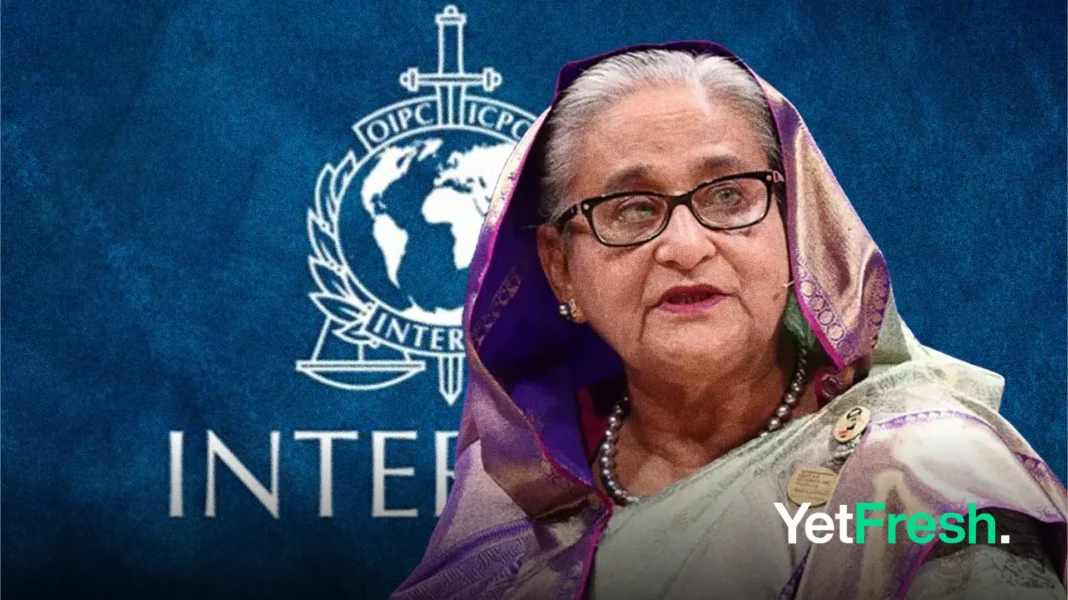Summary:
- Former Bangladeshi Prime Minister Sheikh Hasina is accused of genocide and crimes against humanity during the July-August 2024 unrest.
- The International Criminal Tribunal has requested Interpol to issue a Red Notice for her arrest as she is reportedly outside Bangladesh.
- Arrest warrants were previously issued against Hasina and her associates, including former ministers and police officials, for alleged human rights violations.
- The tribunal was restructured in October 2024, intensifying efforts to prosecute individuals linked to atrocities during her administration.
Former Bangladeshi Prime Minister Sheikh Hasina is at the center of a global legal and political controversy as the International Criminal Tribunal (ICT) has sought an Interpol Red Notice for her arrest. The development, confirmed by ICT Chief Prosecutor Mohammad Tajul Islam on Sunday, December 22, 2024, marks a significant escalation in the legal proceedings against the former leader, who faces allegations of genocide and crimes against humanity during her tenure.
The charges stem from events between July and August 2024, a period marked by mass uprisings and violent crackdowns in Bangladesh. Sheikh Hasina, along with several members of her government and law enforcement officials, has been accused of orchestrating actions that led to numerous deaths and disappearances. Notably, the accusations include incidents such as the killing of students during anti-discrimination protests that culminated in her government being ousted on August 5, 2024.
Chief Prosecutor Tajul Islam revealed that a formal application was submitted to Interpol to issue the Red Notice, a global alert used to locate and provisionally arrest individuals pending extradition. Speaking to the press, he stated, “We have filed an application with Interpol to issue a Red Notice to arrest Sheikh Hasina. The Ministry of Home Affairs can provide further information regarding its status.” Reports indicate that Sheikh Hasina fled Bangladesh for India shortly after losing power.
The ICT’s move follows months of legal actions against Hasina and her associates. On October 17, 2024, the tribunal issued arrest warrants against her and other prominent figures, including Obaidul Quader, former Road Transport and Bridges Minister. These warrants were part of broader investigations into alleged atrocities committed during the July-August unrest. Complaints filed earlier this year also implicated Hasina in incidents such as the police shooting of student protesters and other acts deemed crimes against humanity.
The ICT was restructured on October 14, 2024, under the leadership of Justice Golam Mortuza Majumder as chairman. This reorganization facilitated renewed efforts to prosecute individuals accused of war crimes and human rights violations. Since then, multiple cases have been registered against Sheikh Hasina and others linked to her administration.
Despite these developments, conflicting reports have emerged regarding the status of the Red Notice. While some sources claim it has been issued, others suggest that no official confirmation has been received from Interpol or Bangladeshi authorities. This ambiguity highlights the complex interplay of legal procedures and political dynamics surrounding the case.
Sheikh Hasina, a dominant figure in Bangladeshi politics for decades as leader of the Awami League party, now faces one of the most significant challenges of her career. Her supporters argue that these charges are politically motivated attempts to discredit her legacy, while critics view them as long-overdue accountability for alleged abuses during her rule.
As international attention grows on this unfolding situation, questions remain about how these legal proceedings will impact Bangladesh’s political landscape and its relations with global institutions. The outcome could set a precedent for addressing allegations of human rights violations by political leaders worldwide.
Source: Kalbela




